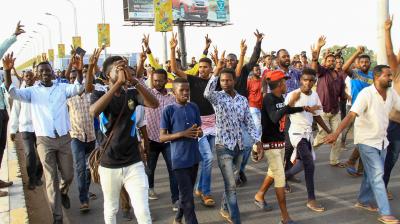Military coup betrays Sudan’s revolution
On Monday 25 October 2021, Lieutenant-General Abdul-Fattah al-Burhan staged a military coup that stalled Sudan’s political transition towards civilian rule. With the government dissolved and a state of emergency declared, two years of painfully gained achievements towards democracy could be lost, the hopes of millions of peaceful protestors shattered, and an already fragile region further destabilised. The military takeover is a desperate attempt by the generals to protect the security elite’s economic interests and to abscond from justice. In response to the coup, millions of Sudanese mobilised to reject the coup and demand full civilian rule. Western governments and the EU have strongly condemned the coup and suspended economic support, while Egypt, the Kingdom of Saudi Arabia (KSA) and the United Arab Emirates (UAE) are believed to back it. Three outcomes from the current crisis are on the table: a) a full civilian transitional government; b) a return to the power-sharing agreement; or c) military dictatorship. To assist Sudan to regain its path towards democracy, Western governments must put all their weight behind the civilian demands and: i) streamline the ongoing mediation processes and ensure civil society is consulted; ii) bolster the legitimacy of Prime Minister Hamdok and his cabinet, iii) increase pressure on Sudan’s military junta and its backers; and iv) strengthen Sudan’s non-violent resistance movement.
This brief presents three plausible scenarios for a way out of the crisis and concludes with considerations for policy makers to get Sudan back on track towards democratic rule.
Download policy brief.






